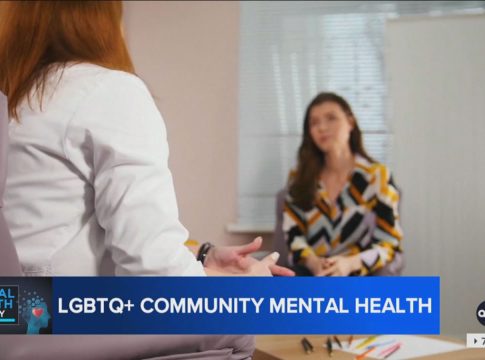Understanding Mental Health Challenges in the LGBTQ+ Community
As we celebrate Pride Month in June, it’s essential to spotlight the mental health disparities faced by individuals within the LGBTQ+ community. Recent conversations with mental health professionals reveal significant challenges that require our attention and empathy.
The Mental Health Crisis
A Rising Tide of Distress
Current trends show an alarming increase in anxiety, depression, and suicidal thoughts among LGBTQ+ individuals, particularly among youth, transgender people, and LGBTQ+ people of color. It’s crucial to understand that these struggles stem not from their identities, but from the external pressures they face daily. Many endure experiences of bullying, family rejection, social isolation, and discrimination, leading to profound feelings of not belonging.
In regions like Los Angeles and broader California, these issues have reached public health crisis levels, exacerbated in communities already grappling with challenges such as racism, poverty, and housing instability. Therapy often becomes a vital space for individuals to explore their identities safely—a rare opportunity for many to engage in personal growth.
Barriers to Mental Health Care
Challenges in Accessing Support
The path to mental health care is fraught with obstacles for many in the LGBTQ+ community. Among these challenges are:
- Stigma: Fear of judgment can deter individuals from seeking help.
- Availability: Long wait times for appointments can make access difficult.
- Cost Concerns: Allied care providers may charge high fees, creating financial barriers.
Moreover, research indicates that LGBTQ+ individuals living in states with anti-LGBTQ+ legislation experience poorer mental health outcomes compared to those in more supportive environments. Protective factors, such as the presence of at least one affirming adult, significantly lower the risk of suicidal thoughts and actions.
Community-based organizations like APLA Health offer trauma-informed care that is both compassionate and affirming. Yet, these vital services face potential threats from funding cuts that could jeopardize access to essential mental health resources.
The Impact of Policy and Rhetoric
Fear and Uncertainty
Recent political climates, marked by anti-LGBTQ+ rhetoric and policies, have heightened feelings of vulnerability among community members. The ongoing invalidation of identities and threats to healthcare access are deeply distressing. Clients often express concerns about losing necessary medical care, especially those reliant on gender-affirming services.
The detrimental effects of these external pressures can manifest as increased anxiety and distress. When societal validation and support wane, individuals may feel their worth and safety are at stake.
Moving Forward: Creating a Supportive Environment
Practical Steps for Well-Being
For individuals seeking to navigate these challenging waters, it’s vital to cultivate a supportive environment. Here are some simple strategies to consider:
- Seek Support: Connect with community organizations that provide affirming services.
- Build Relationships: Surround yourself with affirming friends or mentors who can offer support.
- Focus on Self-Compassion: Acknowledge your feelings without judgment. They are valid.
Conclusion
As we recognize Pride Month, let us come together to support the LGBTQ+ community through understanding and affirmative action. By addressing mental health disparities and advocating for inclusive policies, we can foster a more compassionate society where every individual truly belongs.
For further resources and support, consider exploring local mental health organizations or community centers dedicated to enhancing the well-being of LGBTQ+ individuals. Mental health matters, and it is a collective responsibility to care for one another.

Covers wellness, nutrition, mental health, and daily life tips.
Bio: Talia brings a background in health journalism and holistic living to help readers live better, one tip at a time.

